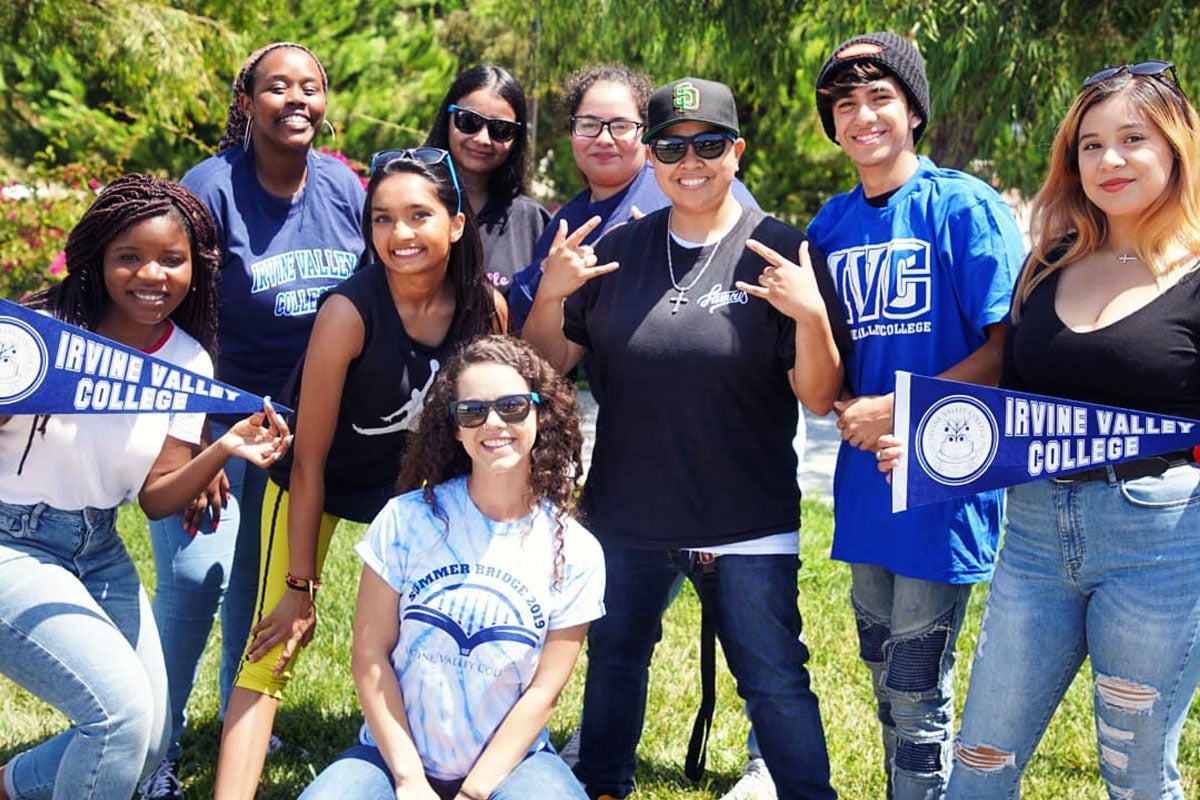Let me guess... the reason you picked up this handout probably has to do with your desire to improve your self-esteem. Good. You'd be amazed at how many students really think badly about themselves. Some are down on themselves all the time, while others think negatively only on occasion.
Self-esteem, or what you think about your worth, has a great deal to do with how you conduct your life. Those with a positive sense of themselves may run for student office or interpret "constructive criticism" from professors as helpful hints. They are willing to try new things, enjoy being friendly, and avoid over personalizing mishaps. They recognize that their worth is not solely a function of external factors, such as what others think of them, their GPAs, their appearance, or their material possessions. Those with low self-esteem, on the other hand, crumble when they make an error on an exam. They may avoid new challenges, believe they don't deserve things or shy away from meeting IVC classmates. Over-sensitivity results in their finding fault in themselves.
How Do You Rate?
Take this inventory to gauge how you see yourself. It is not a scientific psychological instrument, but it may reveal some attitudes and behaviors you may wish to change. Pay attention to how closely each of the statements describes you.
- I frequently use negative labels in describing myself, e.g. "I'm dumb," "I'm so plain-looking," and "I'm a loser."
- When I'm given a compliment, I usually look down and away and think or say something like: "It's really nothing," "Anyone could have done it," or "You're just saying that."
- When there's some sort of mishap, I often take responsibility for it.
- I don't feel comfortable in asking for help; besides, I don't want to burden others.
- I use phrases like, "I should have. . . " and "I shouldn't have. . . " when I look back on things that didn't work out.
- I can list more negative things about myself than positive ones.
- When I compare myself to others, I usually come up short.
- I usually let other people have their way.
It's Time to Boost Your Self-Esteem
There is no time like the present to begin the project. Go ahead and practice the following suggestions. They will feel awkward at first, but like any "habit" (low self-esteem is like a habit of always thinking negatively about yourself), self-esteem can be modified with practice, patience, and positive reinforcement.
Practice "Depersonalization." Let's face it... the whole world is not out to do you in. Many things happen to, and around, you that really have nothing to do with you personally. Recognize that it may be someone else's doing or that no one's really to blame. Also, don't let others criticize you. Be mindful that it's your behavior that may be evaluated, but not who you are as a person.
Avoid Negative Self-Labels. Most likely, you're accustomed to labeling your personality traits as defects. When you catch yourself saying, "I'm such a jerk" or other self-labels, tell yourself, "STOP! " Remember, self put-downs don't help; they only make you feel worse. Just because you behaved in a particular way, your behavior does not define who you are as a person.
Let Go of the Past. You can punish yourself indefinitely for things you could have or should have done in the past. Remember, "hindsight sees 20-20." Since you cannot precisely forecast the future, you're bound to make errors. By understanding this, you can practice forgiving others and yourself for old mistakes, and embarrassments. Don't wallow in feelings of guilt, resentment and shame. They are ineffective motivators for growth. Instead, focus on the present and develop realistic plans for the future.
Quit Your Complaining. No one likes to hear endless complaints. Besides, repetitious complaining conditions you to see the world negatively. If you have a legitimate gripe, see if there's something constructive you can do to correct it. If there's really nothing you can do, accept it as one of life's quirks and shake it off.
Accentuate the Positive. Recognize your strengths. Make a list of your positive qualities, and add to the list every few days. Give yourself credit even for the smallest things. At the end of each day, review your accomplishments. Don't discount your successes by magnifying your mishaps. If you're going to think about errors, concentrate on what you have learned and how you can improve things for the future. Learn to accept compliments with a smile; say, "thank you," and don't undo them by explaining why you did something.
Self-Affirmations. Use personal "pep talks" about what you can do and what is possible. To be your own cheerleader, try repeating to yourself, "I know I can do it" and "I have what it takes to handle things." Here's something bold to try. Face yourself in the mirror and say out loud, "I'm a worthwhile person." Also, write down a positive thought, e.g., "I have a wonderful smile," and stick it on your door, refrigerator, or car dashboard.
Self-Care Strategies (Not to be confused with selfishness.) Enjoy the specialness of being alone (which is quite different from loneliness). Pamper yourself without guilt. Take some time for a quiet stroll, listen to music, watch a sunset, or do whatever activity that is self-nurturing.
Learn to Relax. Throughout the day, take "mini-breaks." Sit down and get comfortable. Slowly take a deep breath, hold it, and then exhale very slowly. At the same time, let your shoulder muscles droop, smile, and quietly say to yourself, "I am r-e-l-a-x-e-d."
Lighten Your Load. Humor and laughter have been shown to have powerful effects on our physical as well as psychological functioning. Learn to chuckle at yourself and your actions. See the humor in your predicaments. Take the wind out of the serious sail of life by having a good time with it. The smile that results will help you feel good about who you are.
Friendliness Counts. Be sure to have eye contact with people. Say good morning to classmates. And, smile more; it will help you and others feel good. Let people know you like spending time with them. Ask them how they're doing and what they're into. Share your ideas and experiences. Remember to speak in a clear voice.
Learn More About Yourself. Cast self-consciousness aside. Don't be overly cautious. Try new things and explore opportunities. Discover items of interest. Find out what you truly like and enjoy. You'll discover that there's a very interesting person inside you.





